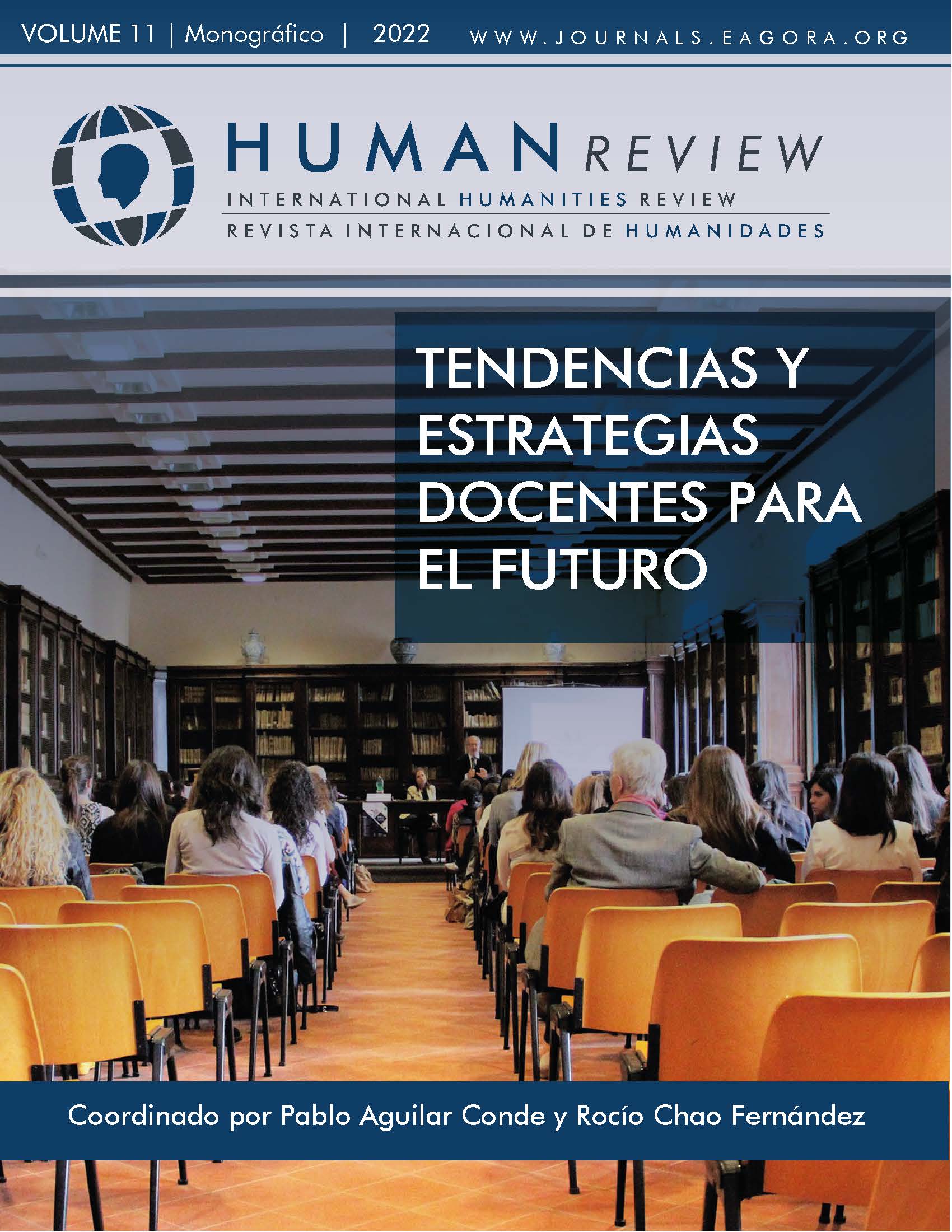Socio-educational pedagogical conception of care cooperative learning for the training of nurses
DOI:
https://doi.org/10.37467/revhuman.v11.3880Keywords:
Cooperative learning, Nursing, Care task, Team task, Teaching-learning process, Competencies, DidacticAbstract
In Nursing, it is required that professionals have knowledge and skills that allow them to assume attitudes of teamwork, therefore, the teaching-learning process must propose didactic alternatives aimed at training in student’s ways of acting to develop care tasks in nursing. equipment. It is proposed as an idea to defend that a conception of the teaching process with a cooperative care learning approach through learning tasks in a cooperative situation favors the development of skills to work as a team in the training of nurses. The methods used were: logical history, structural systemic method and hermeneutic method.
References
Calviño, M. (1998). Trabajar en y con grupos; experiencias y reflexiones básicas. La habana: Felix Varela.
Cinelli, B., Symons, C. W., Bechtel, L., & Rose-Colley, M. (1994). Applying Cooperative Learning in Health Education Practice. Journal of School Health, 64(3), 99 - 102. doi:10.1111/j.1746-1561.1994.tb03268.x
Coll, C.-S. (1984). Estructura grupal, interacción entre alumnos y aprendizaje escolar. Journal for the Study of Education and Development, Infancia y Aprendizaje, 28, 119-138. Obtenido de https://dialnet.unirioja. es/servlet/articulo?codigo=668449
Domingo, J. (2008). El aprendizaje cooperativo. Cuadernos de trabajo social,, 231-246.
Guerra-Azocar, M.-L. (2011). UNIVERSIDAD CATOLICA DE LA SANTISIMA CONCEPCION [Tesis magister]. Obtenido de Los Modelos Didacticos Subyacentes en el Discurso y las Actuaciónes Aulicas de un Grupo de Profesores de Ingles Universitario: http://repositorio.conicyt.cl/handle/10533/185682
Gumbs, J. (2001). The effects of cooperative learning on students enrolled in a level 1 medical-surgical nursing course. Journal of cultural diversity, 8(2), 45-49.
International Commission on Education for the Twenty-first Century. (1996). UNESCO Digital Library. Obtenido de La Educación encierra un tesoro, informe a la UNESCO de la Comisión Internacional sobre la Educación para el Siglo XXI (compendio): https://unesdoc.unesco.org/ark:/48223/pf0000109590_spa
Johnson, D., & Johnson, R. (1999). El aprendizaje cooperativo en el aula. Buenos Aires: Paidos SAICF.
Lewin, K. (1935). Psycho-Sociological Problems of a Minority Group. Journal of Personality, 3(3), 175-187. doi:10.1111/j.1467-6494.1935.tb01996.x
López, D., Ibis, M., & Alvarez, V. (2009). Socio-cognitive regulation strategies in cooperative learning tasks in virtual contexts. IADIS International Conference on Cognition and Exploratory Learning in Digital Age, CELDA 2009, 273-280.
Pérez-Martín, L., & Bermúdez-Morris, R. (2004). Aprendizaje formativo y crecimiento personal. La Habana: Editorial Pueblo y Educación.
Pichon Rivière, E. (2017). The link and the theory of the three Ds (depositant, depositary, and deposited): Role and status. International Journal of Psychoanalysis, 98(1), 177-186. doi:10.1111/1745-8315.12519
Slavin, R. E. (2014). Cooperative learning and academic achievement: Why does groupwork work? Anales de Psicologia, 30(2), 785-791. doi:10.6018/analesps.30.3.201201
Vera, M. (2015). A manera de historia regularidades de la pedagogía Soviética. Boletín Redipe, 4(11), 33-42.
Obtenido de https://dialnet.unirioja.es/servlet/articulo?codigo=6232382 Zarzar, C. (2001). Didactica grupal. México D.F: Progreso S.A. de C.V.
Downloads
Published
How to Cite
Issue
Section
License
Those authors who publish in this journal accept the following terms:
- Authors will keep the moral right of the work and they will transfer the commercial rights.
- After 1 year from publication, the work shall thereafter be open access online on our website, but will retain copyright.
- In the event that the authors wish to assign an Creative Commons (CC) license, they may request it by writing to publishing@eagora.org









